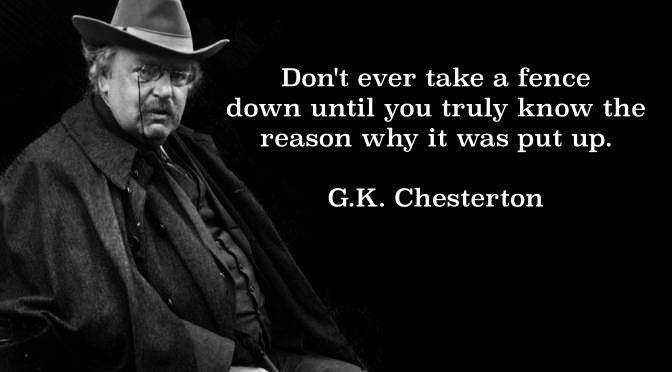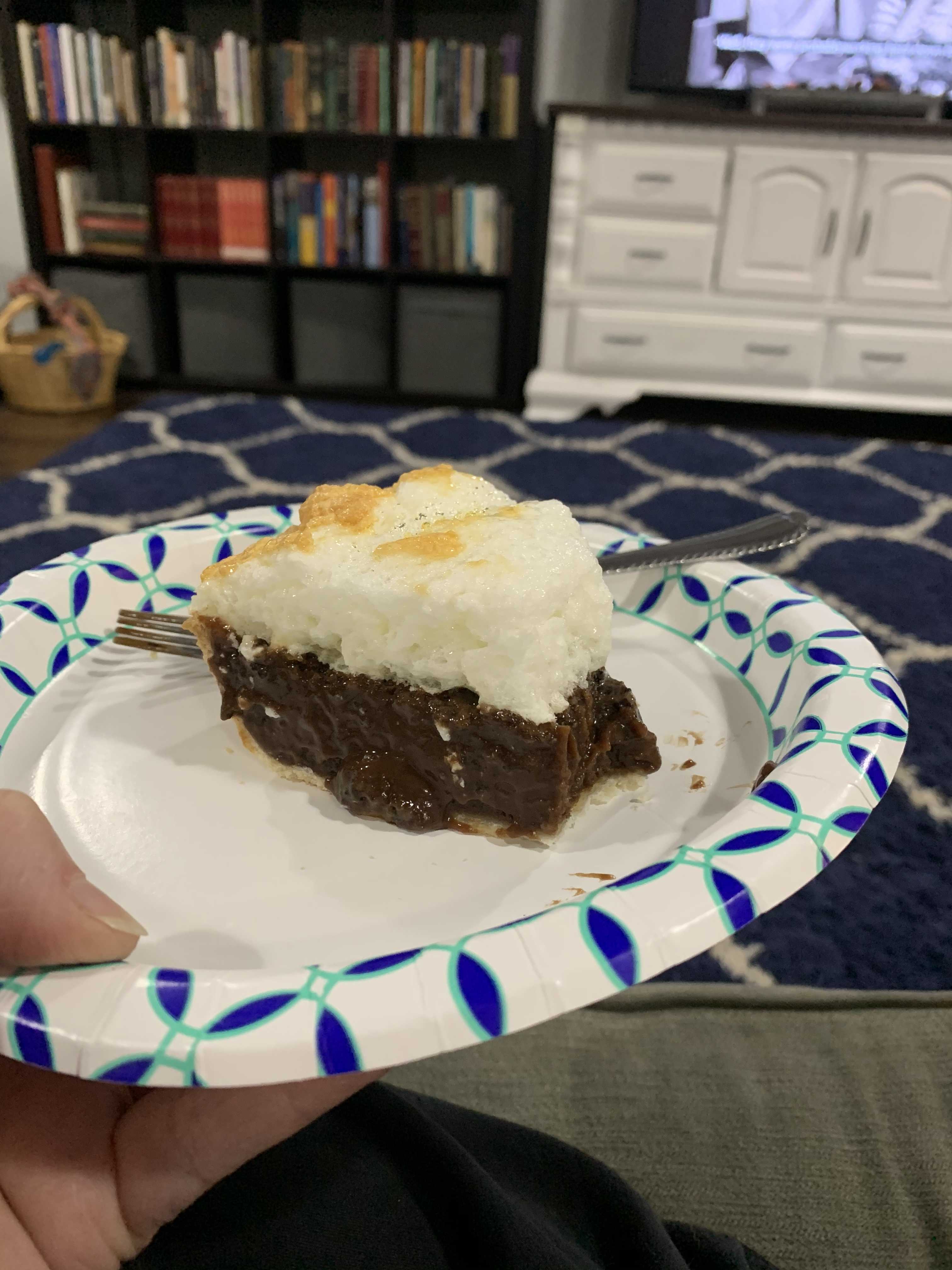Discover posts
The Great Thanksgiving Hoax
https://mises.org/library/grea....t-thanksgiving-hoax-
THE FENCE
By and large, people do not do things for no reason. We’re all lazy at heart. We don’t like to waste time and resources on useless fences. Fences don’t grow out of the ground, nor do people build them in their sleep or during a fit of madness.
Fences are built by people who carefully planned them out and “had some reason for thinking [the fence] would be a good thing for somebody.” Until we establish that reason, we have no business taking an ax to it. The reason might not be a good or relevant one; we just need to be aware of what the reason is. Otherwise, we may end up with unintended consequences; second- and third-order effects we don’t want, spreading like ripples on a pond and causing damage for years.
-----------------------------------------------------------------------
When an impure spirit comes out of a person, it goes through arid places seeking rest and does not find it. Then it says, ‘I will return to the house I left.’ When it arrives, it finds the house unoccupied, swept clean and put in order. Then it goes and takes with it seven other spirits more wicked than itself, and they go in and live there. And the final condition of that person is worse than the first.
Matthew 12:43-45 (Jesus)
Flee the evil desires of youth and pursue righteousness, faith, love and peace, along with those who call on the Lord out of a pure heart. Don’t have anything to do with foolish and stupid arguments, because you know they produce quarrels. And the Lord’s servant must not be quarrelsome but must be kind to everyone, able to teach, not resentful. Opponents must be gently instructed, in the hope that God will grant them repentance leading them to a knowledge of the truth, and that they will come to their senses and escape from the trap of the devil, who has taken them captive to do his will.
2 Timothy 2:22-26 (Paul)
All of us, at one point or another, make some attempt to change a habit to improve our lives. If you’re engaging in a bad habit, it’s admirable to try to eliminate it - except part of why many attempts to do so fail is that bad habits do not appear out of nowhere. No one wakes up one day and decides they want to start smoking or drinking every night or watching television until the early hours of the morning. Bad habits generally evolve to serve an unfulfilled need: connection, comfort, distraction, take your pick.
Attempting to remove the habit and leave everything else untouched does not eliminate the need and can simply lead to a replacement habit that might be just as harmful or even worse. Because of this, more successful approaches often involve replacing a bad habit with a good, benign, or less harmful one - or dealing with the underlying need.
In other words, that fence went up for a reason, and it can’t come down without something either taking its place or removing the need for it to be there in the first place.
-----------------------------------------------------------------------
The philosophy of light
Suppose that a great commotion arises in the street about something, let us say a lamp-post, which many influential persons desire to pull down. A grey-clad monk, who is the spirit of the Middle Ages, is approached upon the matter, and begins to say, in the arid manner of the Schoolmen, “Let us first of all consider, my brethren, the value of Light. If Light be in itself good—” At this point he is somewhat excusably knocked down. All the people make a rush for the lamp-post, the lamp-post is down in ten minutes, and they go about congratulating each other on their un-mediaeval practicality. But as things go on they do not work out so easily. Some people have pulled the lamp-post down because they wanted the electric light; some because they wanted old iron; some because they wanted darkness, because their deeds were evil. Some thought it not enough of a lamp-post, some too much; some acted because they wanted to smash municipal machinery; some because they wanted to smash something. And there is war in the night, no man knowing whom he strikes. So, gradually and inevitably, to-day, to-morrow, or the next day, there comes back the conviction that the monk was right after all, and that all depends on what is the philosophy of Light. Only what we might have discussed under the gas-lamp, we now must discuss in the dark.
G.K. Chesterton

TIP: As this platform only has 3 visibility settings
(Everyone, Friends, Only Me)
if you want to interact with people without laying bare your whole life,
try creating a page, group, or topic in the forum.
GROUPS can be set to private/invite only.
Don't forget to change the privacy settings on your posts
if you don't want everyone to see them!









